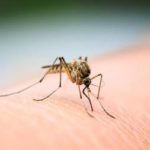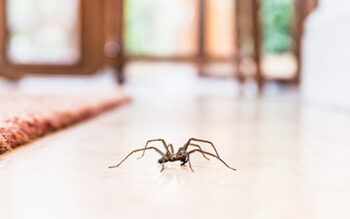
DIY pest control may seem like a good way to save money, time, and unnecessary hassle: You don’t have to choose, pay or wait around for a professional exterminator. You can simply purchase some pesticide products at your local hardware store and you’re ready to go. However, DIY pest control carries significant downsides. If you’re considering this approach, you need to make sure you understand the downsides so you can take steps to mitigate the risks.
What Are the Risks of DIY Pest Control?
Do-it-yourself pest control carries several different risks, including the effects of overusing pesticides, killing beneficial insects, and wasting money on ineffective pest control products. Misuse of pesticides is the most common cause of illness and injury from pest control but you could also be injured by pests themselves, like getting bitten or stung while applying pesticide.
Here are the three categories of major DIY pest control risks:
Pesticide Exposure
Exposure to pesticides can cause adverse health effects, even when used correctly. Improper use of pesticides may lead to chemicals leaking into water supplies, the soil, and possibly the air inside your home. Many DIY pest control chemicals have the potential to contaminate the ground around your home if not used properly. It’s important to read instructions carefully and use the right amount for the right job.
For example, pesticides should be kept away from food and water supplies to avoid contaminating or poisoning people. When applying exterior treatments, oftentimes people forget that fish, frogs, and other animals may be living in or around their backyard ponds. If the product is applied too closely to that water source, it can be harmful to all species that are using it.
Another common example of misapplication in DIY pest control is that homeowners forget to look for open windows while applying products on the exterior of the home, sometimes exposing those inside without realizing it. Pesticides should also be stored out of the reach of children and pets so they don’t come into contact with them. If you’re spraying pesticides inside a home, it’s crucial to ensure there’s adequate ventilation to allow the chemicals to dissipate.
Health and Safety Issues
There are several potential health and safety issues to be aware of when undertaking do-it-yourself pest control. For example, you should always wear protective clothing and gloves when handling pesticides and other chemicals. Pregnant women and young children should avoid entering areas where pesticides have been used. You should also wear protective equipment like a mask and eye goggles when you are working in areas where there might be pests or rodents. This will reduce the risk of getting bitten, stung or sick. You should also clean up any mess that pests leave behind so they don’t attract more pests. Some pest droppings can contain harmful bacteria or roundworms that can cause serious illness. Proper sanitation of areas should be done carefully and after sufficient research, if you aren’t aware of the possible risks involved.
Negligence
There are situations where you can be held negligent or liable for your pest control practices. If you spray pesticide in a stuffy room or trap pests in a building without proper safety precautions, you could cause significant harm to other people creating civil and possibly even criminal liability. This is doubly true if you’re trying to eradicate a species of pest that’s protected by law.
Some products require you to vacate the area after application and you need to ensure that no one would come in contact with that product for the proper amount of time.
Conclusion
While DIY pest control could save you money and time, it also comes with considerable risk. If you’re not careful, you could make things worse by harming yourself or other people with pesticides or getting bitten or stung by the pests you’re trying to eliminate. Professional pest control specialists know how to find the pests on your property, where they are coming from, how they got in, and how to stop them. Plus, they are trained to find the reasons why the pests are there and offer methods of preventing further infestations.
With the integrated pest management approach, your professional pest technician will also be looking for ways to improve your landscaping and other habitats around the home. This will help lead to less pest activity over time. When factoring all of this in, hiring a professional exterminator is more effective and more efficient than a DIY approach.
Professional Pest Control in the Memphis Metro Area
Inman-Murphy, Inc. has been providing affordable effective pest control services in the Mid-South metro area since 1999. Before you do it yourself, contact us for a free quote!





